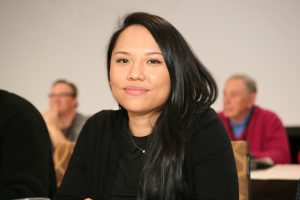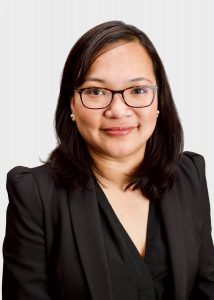Building solidarity across the Filipinx community
Building solidarity across the Filipinx community

Zenee Maceda
By Mycah Panjaitan
The “Building Solidarity Across the Filipinx Community” webinar held on July 6, addressed issues of anti-Black racism, COVID-19, and Duterte’s Anti-Terror law. It was organized by union and community activist Zenee Maceda and York University Professor Ethel Tungohan and was co-sponsored by Gabriela-Ontario.
While seemingly unrelated, the three themes that were addressed during the webinar revolved around the ‘difficult conversations’ the Filipinx community needed to have.
The events that compelled the organizers to host this webinar included the bullying that a Filipina hotel worker faced following her interview where she voiced her concerns regarding the well-being of migrant workers and the insufficiency of CERB in assisting people; the civil uprisings which followed the murder of George Floyd by Minneapolis police in the United States and the importance of recognizing the pervasiveness of anti-Black racism in the Filipinx community and the Anti-Terror Bill in the Philippines.

Ethel Tungohan
The webinar comes at a time when there is a global call for the Filipinx community to name the ways in which our struggles as different communities and peoples intersect.
The first portion of the webinar focused on how anti-Blackness within Filipino communities can be dismantled. Unlearning ‘colorism,’ the belief system that Blackness and dark skin is inherently ‘bad’ or of lesser value was a main highlight. Webinar participants discussed how colorism negatively impacts dark-skinned and Afro-Filipinos which also carries over to the beliefs and attitudes Filipinos have towards Black folks.
Carmen LoBue, an Afro-Filipinx filmmaker and activist based in New York, urged webinar participants to bring more awareness of the concept of ‘race’ in our communities and specifically define what anti-Black racism is, and how this is different from the type of racism that Filipinos and other People of Colour (POC) face.
The second part of the webinar focused on the ways COVID-19 has impacted Filipino communities. Camille Bugo, a Filipina registered nurse, shared her experience in contracting the virus alongside her family. Bugo talked about her dad who works at a large factory and the implications of being employed at this line of work during a pandemic. These include not having enough space to safely physically distance; being non-unionized, and having a large majority of the workers be racialized folks and newcomers who are already vulnerable populations.

Carmen LoBue
The third portion of the webinar focused on the Anti-Terror Bill in the Philippines. Rhea Gamana, Filipina Secretary-General of BAYAN-Canada, went over certain sections of the Bill and highlighted how it affects the diaspora. Specifically Filipinos outside of the Philippines can be classified as a ‘terrorist’ when engaging in critiques of the Philippine government under the Bill’s broad definition of ‘terrorist.’ Gamana urges the diaspora to have a stake in the implementation of this Bill as we are significant contributors of remittances to the country.
In closing, Dr. Tungohan named re-occurring themes throughout the webinar.
First, she addressed the notion of ‘shared fate’, which she defined as the ways we should focus our efforts on utilizing our collective powers to see how anti-Black racism, xenophobia and fascism are interconnected. We should strive to dismantle these systems of oppression as opposed to striving for closer proximities to Whiteness or privilege, she said.
Secondly, she called for us to interrogate structures of power that treats racialized bodies, including our own, as disposable merely to keep the capitalist supply chain running despite jeopardizing our well-being and health.
Thirdly, she encouraged us to have difficult conversations with our family and fellow community members on these subjects even though we may have been taught to stay silent or look away when our elders hold or vocalize harmful racial and classist ideologies.
Towards the end of the webinar participants asked questions and discussed how Filipinos can show their solidarity through intergenerational and international lines. They subsequently identified points of entry into activism. These urgent actions are needed in a time where there is no room for respectability politics, as LoBue stated, while Black people are dying and Filipinos’ lives are on the line.
Organizers ended the event by encouraging people attending to be politically active, with Gamana giving everyone a bold reminder not to live our lives in fear despite oppressive forces at play.
Comments (0)